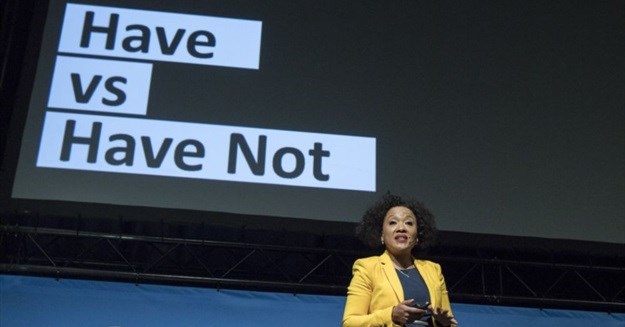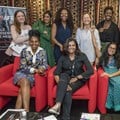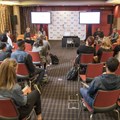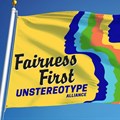#Loeries2018: Welcome to the hypermarket

Matshaba said the world is bi-polar, operating in a realm of polar opposites such as traditional vs modern principles, age vs youth, haves vs have nots and men vs women.
With all these aspects constantly at play, we are now looking at a multi-polar consumer in a hyperactive market and the creative industry can no longer afford to simplify and segment in the ‘haves and have nots’ space.
The pace will never be slow again
According to Matshaba, we are experiencing a multitude of hyper fragmentation across all sectors of the industry, with a ‘hyper’ active market and consumer with the following characteristics:
- The hyper-segmented consumer, who seeks convenience at the cost of brand loyalty
- The hyper-connected consumer – With 2.7bn consumers connected online globally
- Hyper convenience – We already see the e-commerce industry growing at a phenomenal rate, and Matshaba says that by 2020, 50% of all online searches will be voice searches
- Hyper empowered – The consumer journey is ever-more critical to advertising, as the consumer is unafraid and empowered to let brands know what they want
- Hyper glocal – Global knowledge can, should and is being used in a local context, thanks to technology
- Hyper fragile – There will be an extra one-billion consumers in the world by 2020. Matshaba says that brands need to work harder to differentiate themselves.
What does this mean?
First of all, it means that creativity is everyone’s business, according to Matshaba.
She explained “business model disruption” by referring to Unilever’s recent redesign of the C4G (Connected 4 Growth) programme that sees the company evolve in both its global and local innovations, with the focus being on the power of purpose-led brands (with Dove as a good example) that connect more fundamentally with the consumer.
In essence, a purpose-led brand makes for a good business case and has a meaningful impact on the environment of the business/brand.
“A brand without a purpose is just a product,” said Matshaba. She explained that brands should keep people at heart, and that being closer to the consumer is key in building a lasting relationship.
Diversity and creativity are more important than ever in this growing consumer market - Matshaba commented, “If two of us are the same, one of is irrelevant,” which sums up the need established for individuality in the industry perfectly.
She went on to say that risk taking is essential when trying to appeal to consumers and that we need to take risks and be bold, or consumers will do it for us. The example she used was the Axe Is it OK for guys... ad:
Concluding her talk, Matshaba said we should continue to learn and pivot as we go along if we are to survive in the ever-changing, hyper-active consumer space.
- Official site: www.loeries.com, Facebook, Twitter, Instagram
- More info: Loeries Creative Week, Bizcommunity search, Google, Twitter

































